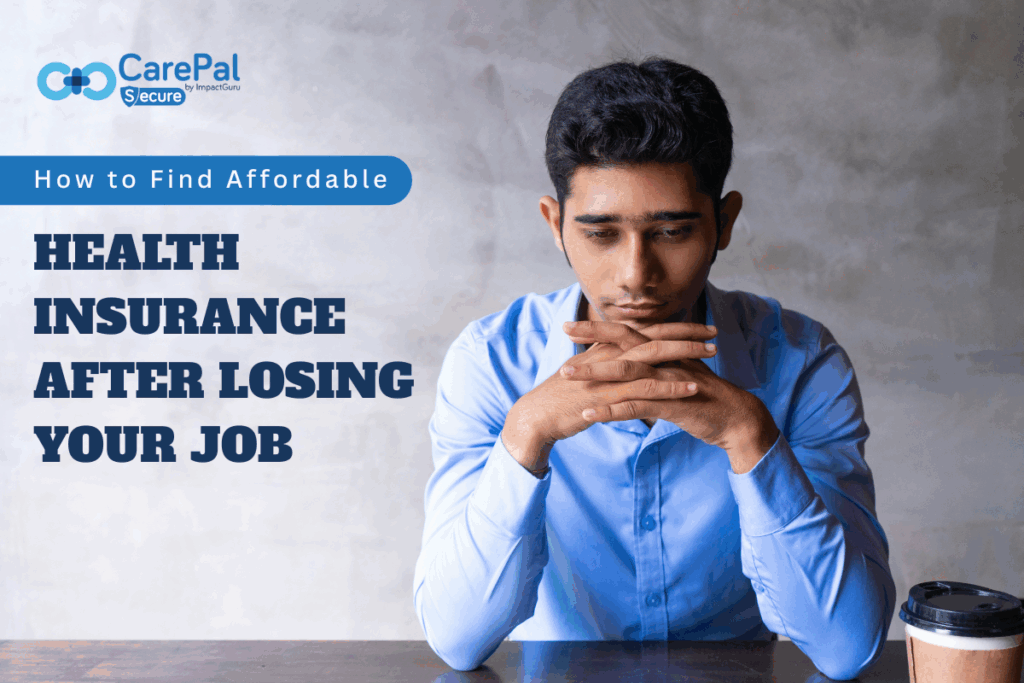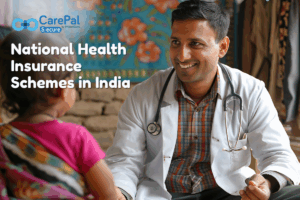How to Find Affordable Health Insurance After Losing Your Job

How to Find Affordable Health Insurance After Losing Your Job
One of the alarming facts about health insurance coverage for middle class India is that many more people are covered through their employer provided health insurance than their own. This leaves them vulnerable in case of sudden unemployment. Losing your job is tough enough without having to worry about your health insurance. Walking the tightrope of maintaining health insurance while being unemployed in a country like India where there is very little by way of social security for middle class can be a very upsetting situation. In this article, we attempt to list out some measures you can take to continue your health insurance after losing your job using information from respected sources.
Transferring a group health insurance to individual policy
When your last employer offered group health insurance, you may have had the option of porting this to an individual policy. The Insurance Regulatory and Development Authority of India (IRDAI) has also made provisions whereby an individual can convert their group health plans into individual health plans with the same insurer. This transition preserves advantages, such as waiting periods for pre-existing conditions. You should start at least 45 days before your current policy ends. This is the best option that we recommend to a lot of our clients.
Thinking About Employer-Sponsored Continuation
Some employers provide you the opportunity to keep your current health insurance for up to a year and a half after you lose your job. This extension can offer respite in the meantime as you look into other permanent insurers. It’s worth checking with your employer’s human resources department about the details for continuing coverage and under what term.
Exploring Short-Term Health Insurance Plans
Short-term health insurance plans, available for three months to a year, can be found online and may provide a temporary solution while you’re unemployed. These plans are relatively inexpensive but may not cover pre-existing conditions, maternity benefits or preventive care. Review the coverage details closely to make sure they meet your health care needs. Some health insurance companies in India offer such short-term health insurance plans
Explore an accident hospitalization cover
A lot of sudden and serious hospitalization expenses happen due to accidents. Even if you don’t have a health insurance policy and it will take you time to select one, we recommend that you should immediately take an accidental hospitalization cover. It is very cheap, is issued quickly and while it covers only hospitalization due to accident it does protect you somewhat.
Joining a spouse or parental health insurance plan
If possible, you might try to become a dependent under a family member’s health insurance plan. If your spouse carries employer-sponsored health insurance, for example, then you can join under their plan. It can be economical and give the employee immediate coverage without having to obtain a new personal policy. This is something you can explore, but such changes are subject to underwriting.
Explore the ESIC network
If you earn below 21000 and your employer makes a contribution to ESIC, you should explore ESIC hospitals too.
Seeking Professional Advice
Finding your way around health insurance options after losing a job can be complicated. Insurance advisors or financial planners can also provide personalized advice based on your circumstances. They can clarify the particulars of various policies, eligibility requirements, and how to best keep health coverage uninterrupted.
Conclusion
Just because you lose your job doesn’t mean you need to lose your health insurance coverage. You can find the right health insurance while unemployed if you take action on the above. Evaluating your medical needs, financial status, and qualifications for several programs is essential to making informed choices. Acting sooner enables you and your family to stay safe from unexpected medical bills during this difficult time.
Frequently Asked Questions
Look for plans with comprehensive coverage and low premiums like CarePal Secure Max or government-backed schemes like Ayushman Bharat
Yes, plans like CarePal Secure Mini offer budget-friendly options with essential coverage and teleconsultation benefits.
Compare plans online, use insurance aggregators, or consult a health insurance advisor. Focus on premiums, coverage, and network hospitals.
Yes, schemes like Ayushman Bharat, ESIS (if previously covered), or state-sponsored programs may offer coverage depending on eligibility.

Omprakash Lanjewar is passionate about making health insurance simple and accessible. With a background in finance and strategy, he shares clear, practical insights to help readers navigate their insurance choices. Outside of work, Omprakash enjoys swimming, cycling, and staying connected with industry trends.












